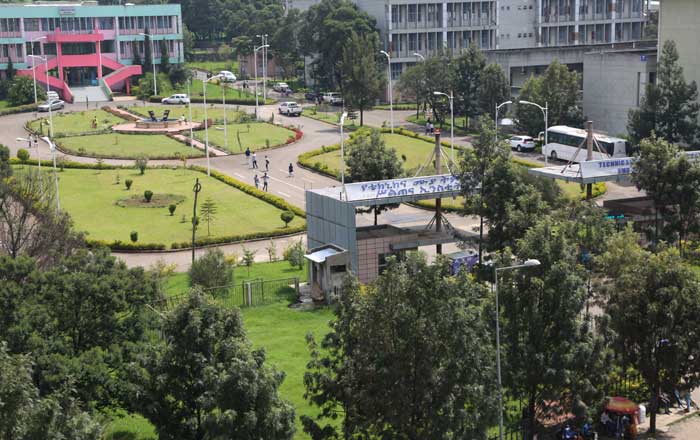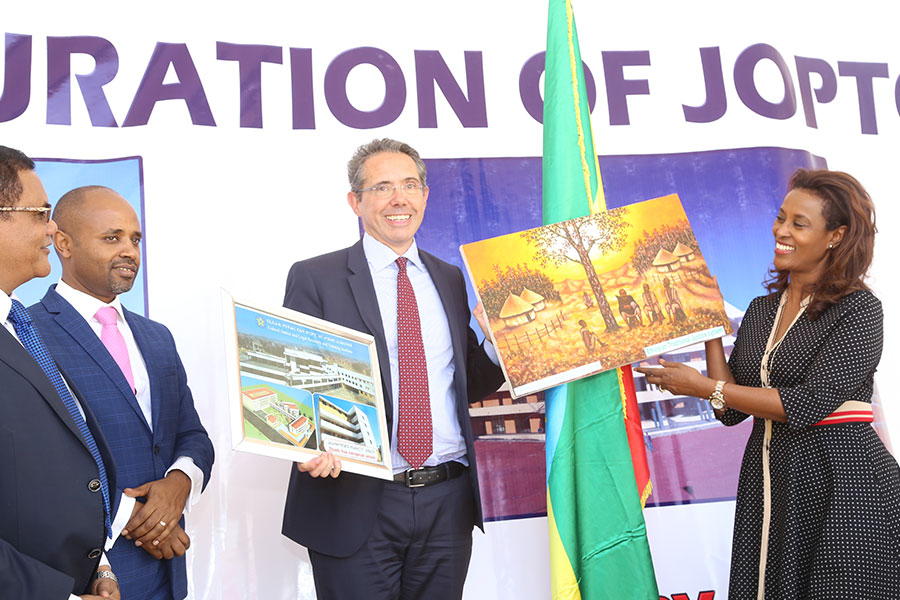
Radar | May 13,2023
A women's rehabilitation and skill development centre foresees construction as Mayor Adanech Abiebie laid the cornerstone two weeks ago. The 3.1 billion Br project lies on 5.1hct land located around Qaliti area on the outskirts of Addis Abeba.
The centre is expected to take in 2,000 people at a time and level off to at least five times the annual beneficiaries. The facility would comprise; sleeping quarters, training rooms, daycare centres and recreational areas to equip women with the necessary skill sets to gain employment.
The Head of the Addis Abeba Mega Project Office, Debo Tunka, said the construction would be completed within a year and they would be working non-stop to realise it at the commencement ceremony.
The Mega Project Office under the City Administration handles all projects that cost north of a billion Birr. It is currently building the Adwa Zero Kilometre Museum, a memorial centre named after the Ethiopians' famous victory of Adwa over fascist invaders back then, with around 4.6 billion Br, with an amphitheater, libraries, and youth centres.
According to the Head of Addis Abeba Women & Social Affairs Bureau, Hana Yeshinegus (PhD), the centre is expected to house impoverished women from the streets and provide them with life skills and vocational training. This is to be accomplished through training that warrants employment for the women involved.
"The facility will focus primarily on women engaged in prostitution," said Beale Abebe, communications director for the Bureau.
She lauded that the centre was a first of its kind and would help make headway towards addressing the large numbers of women who find themselves toiling in the capital's streets.
A 2019 study by Kassim Yusuf at the University of Gondar indicated that 28pc of prostitutes in the country are compelled to do it for a living due to poor income. The study also implied that about a quarter of street children are engaged in prostitution, with some as young as eleven years.
A similar study conducted by UNICEF estimates that 60pc of the homeless population in the capital are rural migrants who went out to the streets as a result of extreme poverty.
"Reproductive health and sex education have to be a part of rehabilitation," said Aster Teshome (MD), general manager of the Centre for Adolescent Girls Health, a non-profit organisation that primarily focuses on the reproductive health of women below the age of 19. The passionate doctor emphasised the need to give girls sex education if it is to prevent a cycle of suffering from passing to their children. The lack of guidance and awareness on the subject leads them to engage in unprotected sex with or without their consent.
Aster explained that the unfortunate occurrence of rape is all too common for girls who end up living on the streets and the organisation works to at least decrease the number of repeated unwanted pregnancies. She says most of the women living in the capital's streets are forced by extreme poverty and the absence of support structures makes them helpless.
Based on her experience of caregiving for young women with sexual health issues, Aster suggested that most girls in such rehabilitation centres need compassionate care alongside life skills and vocational training. While she supports the construction of the centre, the necessity of addressing the health aspect requires attention emphasised the care provider.
For the psychologist and counselor at Aha Psychological Services, Moges Gebremariam, the precedence of fine-tuning individuals' thoughts and behaviour with the rest of the community a.k.a psychosocial reintegration should be emphasised.
Moges spent over two decades observing several emotionally troubled people and suggested the training at the centre must address the "emotional swelling" of the vulnerable women.
The psychologist explained that women who find themselves on the streets have significant childhood trauma and a higher propensity for substance addiction which needs professional treatment. While he applauds the effort, he urges the need for careful calibration of emotional reasoning strange behaviour will most likely outburst if the emotional wounds of these women are not addressed.
"Dealing with trauma and addiction must come before economic empowerment," Moges told Fortune.
PUBLISHED ON
[ VOL
, NO
]

Radar | May 13,2023

Fortune News | Aug 31,2019

Fortune News | Mar 02,2019

Fortune News | Mar 25,2023

Fortune News | Dec 04,2022

Radar | Aug 10,2019

Radar | Nov 20,2023

Commentaries | Jul 24,2021

Radar | Nov 30,2019

Fortune News | Oct 23,2021

Dec 22 , 2024 . By TIZITA SHEWAFERAW
Charged with transforming colossal state-owned enterprises into modern and competitiv...

Aug 18 , 2024 . By AKSAH ITALO
Although predictable Yonas Zerihun's job in the ride-hailing service is not immune to...

Jul 28 , 2024 . By TIZITA SHEWAFERAW
Unhabitual, perhaps too many, Samuel Gebreyohannes, 38, used to occasionally enjoy a couple of beers at breakfast. However, he recently swit...

Jul 13 , 2024 . By AKSAH ITALO
Investors who rely on tractors, trucks, and field vehicles for commuting, transporting commodities, and f...

Nov 1 , 2025
The National Bank of Ethiopia (NBE) issued a statement two weeks ago that appeared to...

Oct 25 , 2025
The regulatory machinery is on overdrive. In only two years, no fewer than 35 new pro...

Oct 18 , 2025
The political establishment, notably the ruling party and its top brass, has become p...

Oct 11 , 2025
Ladislas Farago, a roving Associated Press (AP) correspondent, arrived in Ethiopia in...